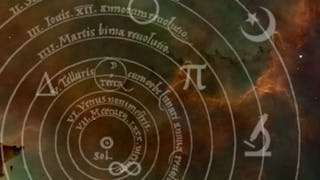Philosophy, Science and Religion mark three of the most fundamental modes of thinking about the world and our place in it. Are these modes incompatible? Put another way: is the intellectually responsible thing to do to ‘pick sides’ and identify with one of these approaches at the exclusion of others? Or, are they complementary or mutually supportive? As is typical of questions of such magnitude, the devil is in the details. For example, it is important to work out what is really distinctive about each of these ways of inquiring about the world. In order to gain some clarity here, we’ll be investigating what some of the current leading thinkers in philosophy, science and religion are actually doing.



Philosophy, Science and Religion: Science and Philosophy



Instructors: Dr J Adam Carter
62,012 already enrolled
Included with 
(1,072 reviews)
Skills you'll gain
Details to know

Add to your LinkedIn profile
See how employees at top companies are mastering in-demand skills

There are 5 modules in this course
In this module, Dr Orestis Palermos provides a short introduction and overview of the key themes that will be discussed in the ‘Science and Philosophy’ course.
What's included
1 video1 reading1 discussion prompt
In this module Professor Al Mele presents experiments that purport to show that there is no such thing as free will. He then presents three criticisms of this interpretation of the evidence.
What's included
7 videos5 readings5 assignments1 peer review1 discussion prompt
Guest lecturer: Dr Michael Murray. Are science and religion compatible with one another? Are they incompatible? What do these questions even mean, and how do we go about answering them? Philosophical tools are helpful to make progress with these very important questions. In this module, Dr Michael Murray offers a philosophical analysis of the complex and easily misunderstood issue of the relationship between science and religion.
What's included
7 videos2 readings3 assignments1 peer review
Guest lecturer: Professor Martin Kusch. This module will focus on a central challenge for scientific knowledge: Are there any scientific claims that are absolutely true, or are they all true relative to the system of thought that generated them? If we accept the latter, does this also hold true of any claims we might make, including within the domains of philosophy and religion?
What's included
5 videos3 readings3 assignments1 peer review1 discussion prompt
This module starts with Dr. Mark Harris presenting the history of creationist views and what is claimed about evolution by different creationist approaches. Professor David de Pomerai then goes on to explain what evolutionary biology is.
What's included
14 videos5 readings11 assignments1 peer review2 discussion prompts
Earn a career certificate
Add this credential to your LinkedIn profile, resume, or CV. Share it on social media and in your performance review.
Instructors


Offered by
Explore more from Philosophy
 Status: Preview
Status: Preview
The University of Edinburgh
 Status: Preview
Status: Preview
The University of Edinburgh
 Status: Preview
Status: Preview
University of Alberta
 Status: Preview
Status: Preview
The University of Edinburgh
Why people choose Coursera for their career




Learner reviews
1,072 reviews
- 5 stars
67.72%
- 4 stars
23.32%
- 3 stars
4.94%
- 2 stars
1.39%
- 1 star
2.61%
Showing 3 of 1072
Reviewed on Oct 31, 2024
Professors cover timely and complex questions in a very accessible and lucid manner. The quizzes are thought provoking and engaging. Highly recommend this course!
Reviewed on Jan 5, 2022
Very intresting and well presented. However, sometimes it was difficult to exprapolate the quiz answers or essay answers from the material in the manner it was presented.
Reviewed on Jun 11, 2017
I do think it was very interesting and informative. I gave it four out of five stars, only because it could evolve given some time and improve somewhat. I have suggested it to others.

Open new doors with Coursera Plus
Unlimited access to 10,000+ world-class courses, hands-on projects, and job-ready certificate programs - all included in your subscription
Advance your career with an online degree
Earn a degree from world-class universities - 100% online
Join over 3,400 global companies that choose Coursera for Business
Upskill your employees to excel in the digital economy
Frequently asked questions
To access the course materials, assignments and to earn a Certificate, you will need to purchase the Certificate experience when you enroll in a course. You can try a Free Trial instead, or apply for Financial Aid. The course may offer 'Full Course, No Certificate' instead. This option lets you see all course materials, submit required assessments, and get a final grade. This also means that you will not be able to purchase a Certificate experience.
When you purchase a Certificate you get access to all course materials, including graded assignments. Upon completing the course, your electronic Certificate will be added to your Accomplishments page - from there, you can print your Certificate or add it to your LinkedIn profile.
You will be eligible for a full refund until two weeks after your payment date, or (for courses that have just launched) until two weeks after the first session of the course begins, whichever is later. You cannot receive a refund once you’ve earned a Course Certificate, even if you complete the course within the two-week refund period. See our full refund policy.
More questions
Financial aid available,
¹ Some assignments in this course are AI-graded. For these assignments, your data will be used in accordance with Coursera's Privacy Notice.


